This was the question asked by the new Chair of UN COPUOS.
He answered by citing Professor Stephen Hawking: "In a way the situation was like that in Europe before 1492. The discovery of the new world made profound differences to the old. Spreading out into space will have even greater effect. It will completely change the fu-ture of the human race and maybe determine whether we have any future at all. Hope-fully, it would unite us to face a common challenge".
While it is rather difficult (if not easy) to globally unite to a single place and make policy decisions, UNCOPUOS is doing a wonderful job in the area of Peaceful Uses of Outer Space. This year, it was the 51st session of the Committee on the Peaceful Uses of Outer Space (COPUOS) that was held in Vienna, Austria, from 11 to 20 June.
I attended this event for 3-days (from 11-13 June). While it is sometime difficult to sit and listen to a bit-boring statement but more often it is quite interesting and containing useful information. While my background is also in Space Sciences, I have Bachelor and Master Degrees in this subject and also doing a PhD in Space Science, it was really nice to see the space leaders from around the world. As I am always eager to learn so was that in my experience at COPUOS that I found it a quite interesting and learning environment. UN COPUOS was exactly a best match for me to attend and to know what is happening in space sciences and technology around the world and what new changes are considered and implemented in the space policies.
In this session UN COPUOS discussed how we can maintain outer space for peaceful purposes and ensure that space technology applications in disaster management, cli-mate change and food security. Other topics included Space and water, Space and so-ciety (Space and education). COPUOS also discussed the reports of its two Subcommittees vis., the Scientific and Technical Subcommittee and the Legal Sub-committee that already held this year.
Distinguished delegates from around the world presented their statements and dis-cussed various issues. I write these briefly in the following paragraphs.
In its 582nd meeting in forenoon of 11 June, the committee elected Mr. Ciro Arévalo-Yepes of Colombia as new Chairman and also elected First Vice-Chairman and Second Vice-Chairman from Thailand and Portugal. The committee also invited representatives of Angola, Costa Rica, Côte d’Ivoire, Dominican Republic, the Macedonia, Guatemala, Paraguay, Yemen, Tunisia, and Holy See.
European Commission, the European Organisation for Astronomical Research in the Southern Hemisphere (ESO), the European Telecommunications Satellite Organization (EUTELSAT-IGO), and the International Institute of Space Law (IISL) were invite to par-ticipate in the session as observers. The representatives of Japan, the Republic of Ko-rea, Belgium, China, Thailand, Colombia, Chile and observer for the International Insti-tute of Space Law (IISL) made their statements.
In afternoon (583rd meeting), the representatives of India, Indonesia, the Czech Repub-lic, France, Malaysia, United States of America and the observer for the European Or-ganization for Astronomical Research in the Southern Hemisphere (ESO) made their statements.
In its 584th meeting in forenoon of 12 June, the representatives of Argentina, Spain, Austria, Nigeria, Ukraine, Venezuela, Hungary, Brazil, Canada, Cuba, Italy, Germany, Chile, and Bolivia & the observer for IAF made their statements.
There was a special presentation on “NASA: The First 50 Years and Future Horizons” by Ms. Shana Dale of the United States of America. Very well presented!
In its 585th meeting in afternoon, the representatives of Belgium, Pakistan, the Russian Federation, Vietnam, Iran, Iraq, Poland, Ecuador, Libya, South Africa & the observers for the IAA, the Space Generation Advisory Council (SGAC), and the SWF made their statements.
In its 586th meeting in afternoon, beside agenda work, there were three special presen-tations on “International cooperation in space weather monitoring and forecasting” by Mr. Thomas of US, 2nd on “Food Security and Sustainable Agriculture Bridging Remote Sensing and Ground Information for National and International Policy Actions” by Mr. Mahendra Shah of the IIASA, and on “European Space Policy” by Ms. Helene of Euro-pean Commission.
In its 587th meeting the COPUOS considered the reports of Scientific and Technical Subcommittee & Legal Subcommittee. At the end of the meeting there were two special presentations on “Space debris” by Russian representative, and on “Spin-off benefits of technology” by Indonesian representative.
There were several informal meetings of delegates and UN staff, institutes and NGOs. I hereby thank SGAC to provide me with this opportunity to attend this session.
A special focus was given to the topic "Space and education and society". The Commit-tee heard on a number of educational initiatives undertaken at global level that use sat-ellites and space technology for distance education to reach educators and students.
Space and Water was one of the main issues where much of work in space technolo-gies in being undertaken, including mapping of those area where there is no (or very less) water and hence posing a threat to food availability to mankind & the areas where there is lot of water causing floods, and disasters. There is a strong need to make fur-ther studies in this area and specially study various indicators to such situation to make accurate forecasts and hence saving valuable lives and property.
There were two very nice and informational presentations by SGAC members. 1st was on “Youth views on capacity building for disaster management” by Bee while 2nd was about a “New framework for space traffic management” presented by Johanna.
Both presentations are available online and are worth reading.
http://www.unoosa.org/pdf/pres/copuos2008/tech-08E.pdf
http://www.unoosa.org/pdf/pres/copuos2008/tech-11E.pdf
The following new organizations were granted the status of “Observer”
European Organisation for Astronomical Research in the Southern Hemisphere (ESO)
European Telecom Satellite Organization (EUTELSAT-IGO)
International Institute of Space Law (IISL)
Prince Sultan Bin Abdulaziz International Prize for Water
Secure World Foundation (SWF)
What they do next?
The COPUOS has 69 Member States and few intergovernmental and non-governmental organizations (including Space Generation Advisory Council and World Space Week Org) as Observers. The COPUOS and its Subcommittees make recom-mendations to the General Assembly.
SGAC has an Observer status with COPUOS and it actively participates in COPUOS activities since it was granted this status. This is a very great opportunity for all the young members especially the national representatives to let their voice be heard.
Prepared by Muhammad Shafiq
Friday, June 27, 2008
Subscribe to:
Post Comments (Atom)
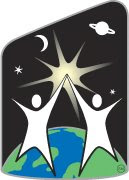




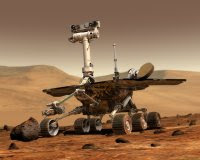



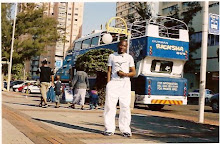
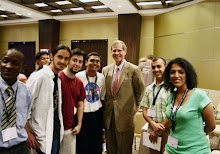


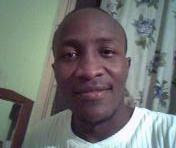
No comments:
Post a Comment